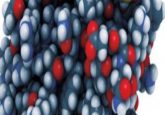Proton beam therapy proposes safer, less toxic alternative for pediatric brain cancer patients
New research, published in The Lancet Oncology, reveals that proton beam therapy demonstrates similar survival rates to conventional radiotherapy in pediatric medulloblastoma patients, and may be less toxic to the body.
The highly targeted therapy could become a safer alternative to current treatments, which can have damaging effects on cognition, hearing, hormone function and healthy tissue. Most often, the worst long-term effects are seen in the youngest patients undergoing treatment for the aggressive cancer.
Within the recent study, 59 patients were enrolled between 2003 and 2009, the majority having undergone partial or complete tumor removal. The individuals, aged 3–21 years, received chemotherapy and proton beam therapy and were followed-up for an average of 7 years.
Progression-free survival in these patients was 83 % at 3 years and 80 % at 5 years. In addition, serious hearing loss was observed in 12 % of patients at 3 years and in 16 % of patients at 5 years.
Perceptual reasoning and working memory were not significantly affected; however, patients did display problems with processing speed and verbal comprehension.
No toxic cardiac, pulmonary or gastrointestinal effects (commonly seen as late effects after photon radiotherapy) were reported. However at 5 years, 55% of patients suffered dysfunctions in the neuroendocrine system.
David R Grosshans, from the University of Texas MD Anderson Cancer Center (TX, USA) commented in a linked article: “I believe that radiation oncologists have always understood that our treatments are associated with the potential for severe adverse effects. I also believe that many in radiation oncology embrace new technology, not simply to have the latest and greatest innovations, but rather to reduce the effect of radiation therapy on patients’ quality of life. Nowhere in oncology is this more important than for pediatric cancers.”
He concluded: “This study sets a new benchmark for the treatment of pediatric medulloblastoma and alludes to the clinical benefits of advanced radiation therapies.”
Two UK centers for proton therapy are currently planned in Manchester and London and are due to open in 2018.
Sources: Yock TI, Yeap BY, Tarbell NJ et al. Long-term toxic effects of proton radiotherapy for paediatric medulloblastoma: a phase 2 single-arm study. Lancet Oncol. http://dx.doi.org/10.1016/S1470-2045(15)00167-9 (2016) [Epub ahead of print]; The Lancet press release via EurekAlert!




